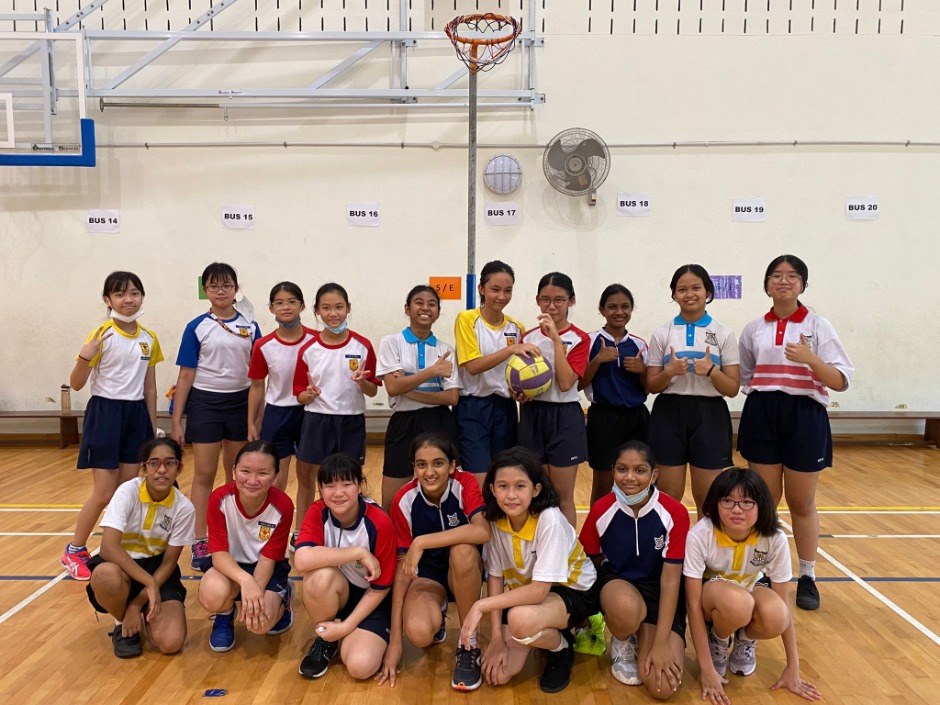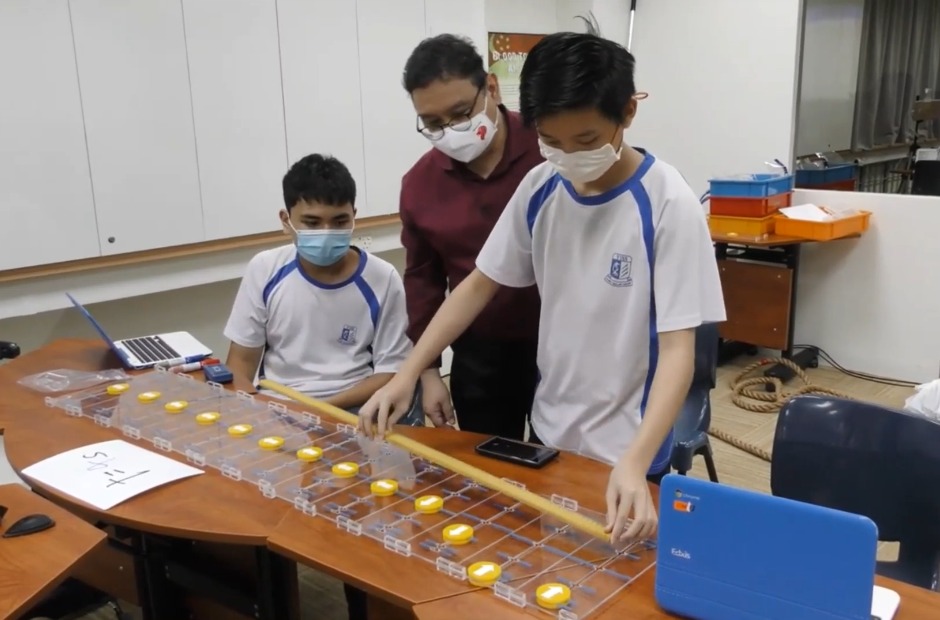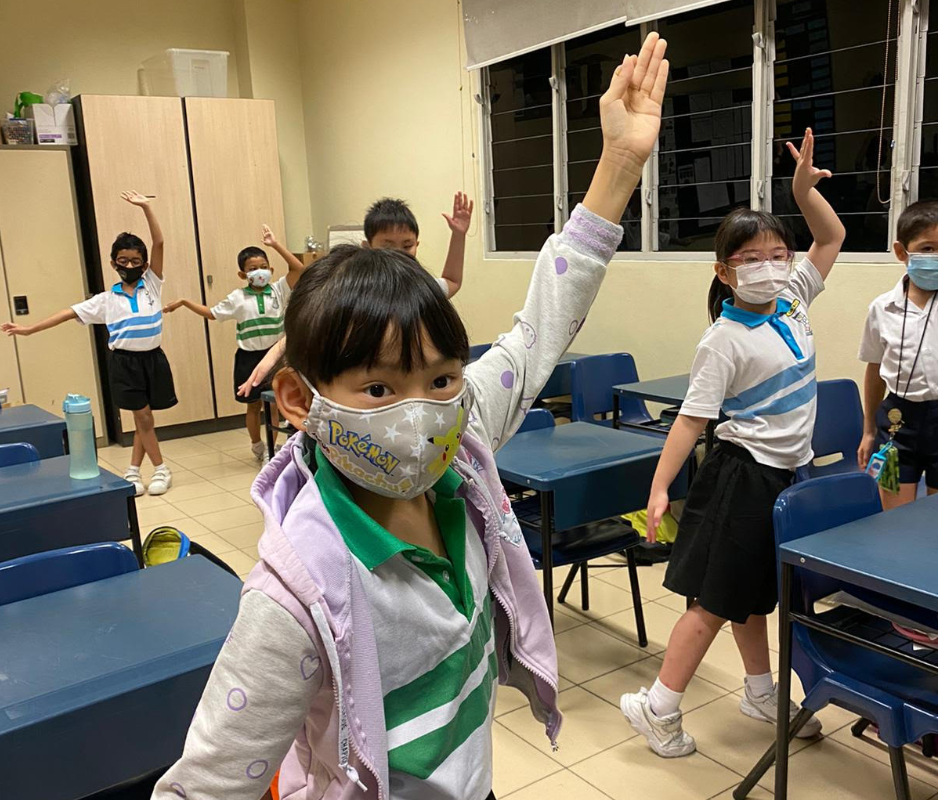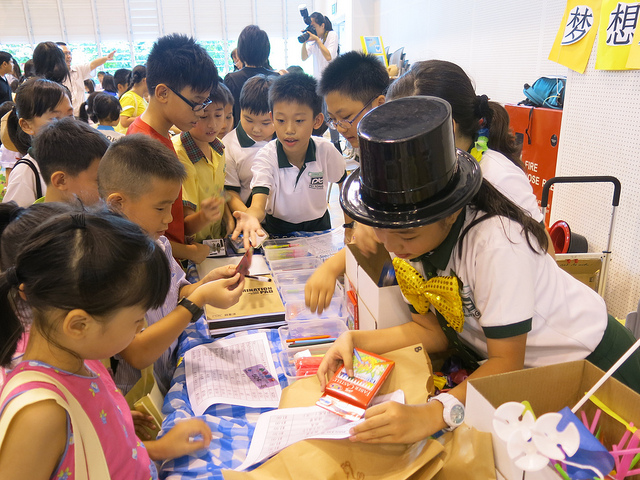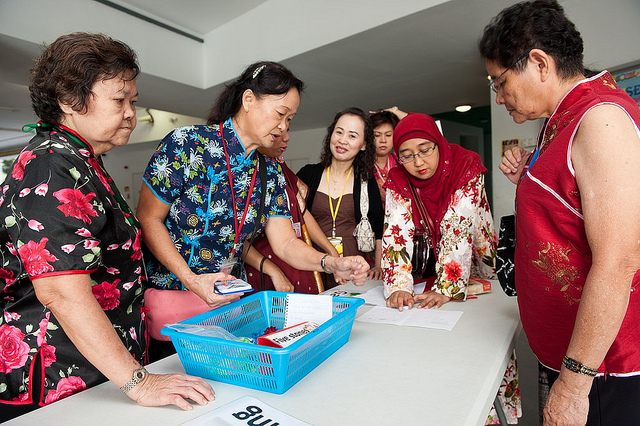Move Your Body, Strengthen Your Mind
09 Dec 2010

The Programme for Active Learning (PAL) gives pupils the chance to develop physical coordination along with other important social skills.
“Are you ready to go to the next station?”
“YES!” came the raucous reply.
Without missing a beat, a bunch of Pri 1 pupils organised themselves into different “trains”, while uttering animal noises that represent their group. As they hissed, croaked and meowed their way to their next stop, the children shook and squeezed their bodies through a sinuous landscape of planks, ladders, tunnels and crash mats.
It may sound like a game of human centipedes, but this was part of the “Gymkidz Goes to NTPS programme” at New Town Primary School, where pupils have taken part in a Programme for Active Learning (PAL) module in Sports and Games for nearly a year. This particular exercise, says PE coordinator Mr Azman Aziz, aims “to develop in the pupils basic fundamental and exploratory movements such as tumbling.”
Focusing on non-academic development
Designed for Pri 1 and Pri 2 pupils, PAL modules places emphasis on their non-academic development. The modules are held during curriculum hours and expose pupils to various dynamic activities that help to build up their physical acumen, character and other life skills. Apart from Sports and Games, New Town Primary School has also introduced a PAL module in Dance, Music and Movement.
In another corner of the gym, Allied Educator Ms Noor Jahan is supervising a group of pupils as they traverse a balance beam. In her eagerness, one girl rushed to get on the beam, even though her classmate was barely halfway across and still trying to find his footing. “Do you think it’s safe for him if you go now?” called out Ms Noor with a firm but friendly reminder. “Is he already well-balanced?” Hesitating, the girl reconsidered her action and stepped on the beam only after the boy had successfully crossed over.
Along with the teachers, Allied Educators such as Ms Noor play an active role in observing and guiding the students during this Gymkidz session. Brain and brawn receive equal attention, as lessons from the physical workout are recapped during the Form Teacher Guidance Period. Ms Tan Yan Shan, who takes care of the Pri 1 class Caring 5, explains that the PAL sessions complement the guidance period, such as by helping pupils understand the need for impulse control. “Should they be screaming and shouting when they are excited?” she says, citing a question posed to get pupils to think about the need to pay attention to their schoolmates in the heat of the moment.
Other life skills that come into play during the PAL sessions include self-motivation, goal-setting and self-organisation. Back at the gym, the students at another station are given sticks and balls and free rein to do what they wish with these items. “The dynamics become apparent,” remarks Ms Noor. “Some pupils will play on their own while some will start to find others and form teams, allowing us to observe their leadership qualities.”
Each station concludes with a short debriefing session, during which the facilitator shares with the pupils a take-home lesson based on the activity. Another key goal of PAL is to encourage pupils to experiment with different ways of playing with any given item or structure. Think going down foot first is the only way to descend a slide? “How many of you did it backward?” asks a facilitator. “What about forward? Or on your tummy?” Beaming, some pupils raised their hands, while others looked eager to try something new the next round.
A safe environment for mistakes
For the pupils, PAL sessions are a chance to experiment with new approaches and stretch their muscles, both physical and mental, in a safe, supervised environment. Under the watchful eyes of the teachers and facilitators, mistakes or missteps result in little more than a bruised ego, and the pupil is encouraged to be bold and try again.
Ms Tan shares the experience of her Pri 1 pupil John Lloyd, whose first attempt to manoeuvre on a ladder left him trembling and adamantly refusing to let go. “The facilitators guided him progressively every session,” she relates. “Today he explores on his own how he can move from one side of the ladder to the other.”
“At first, I was very scared,” recounts John. “The second time I was still scared but I followed my heart and tried my best.” After completing the station, John clambered down to receive an enthusiastic round of high-fives.
John is not the only pupil to have learnt to overcome his fears. Another boy, according to Ms Noor, was initially mocked by his classmates for not being able to do a forward roll due to his body size. “We addressed the issue immediately and explained why they shouldn’t laugh at their friends, and talked to him to boost his self-confidence,” she recalls. “During one of the sessions, he enjoyed himself so much that he was not even conscious he tore his pants!”
“Sometimes a kid initially says no, stands still and does not want to participate in PAL at all,” Ms Noor notes. “But I’m proud of the fact that in spite of that, over time, it is their own will that urges them on, all without much facilitation by the teacher.”


